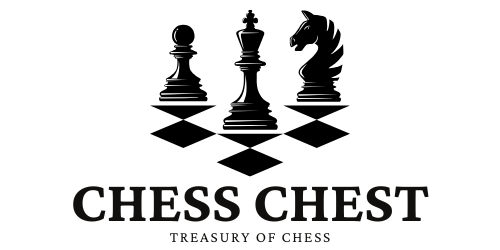Artificial intelligence (AI) has revolutionized chess software, transforming the way we analyze games, train, and play. From neural network-powered engines to adaptive learning tools, AI has introduced capabilities that were once unimaginable. In this article, we’ll explore how AI has impacted chess software, examine the innovations it has brought, and discuss what these changes mean for players of all levels.
1. Neural Network Integration: A Game-Changer in Chess Engines
One of the most significant AI advancements in chess software is the integration of neural networks into chess engines. Unlike traditional engines that rely on brute-force calculations, AI-powered engines like AlphaZero and Leela Chess Zero use neural networks to analyze patterns and learn from experience, much like a human would.
- How It Works: Neural networks enable chess engines to evaluate positions more intuitively by identifying patterns and concepts within positions, rather than calculating all possible moves.
- Impact on Analysis: This approach has improved engine accuracy, allowing them to make more strategic and human-like decisions. Players now benefit from analysis that incorporates both tactical depth and positional understanding, leading to more insightful game evaluations.
2. Adaptive Training and Personalized Learning
AI has also brought about innovations in training and personalized learning tools. Chess software platforms like Chess.com and Lichess use AI to adapt lessons and tactics to individual users’ strengths and weaknesses, creating a customized learning experience.
- How It Works: AI algorithms assess a player’s performance over time, identifying areas where they struggle and adjusting training exercises to target those areas.
- Impact on Learning: This personalized approach accelerates improvement by focusing on specific weaknesses, making training more efficient and tailored to the player’s needs. Beginners benefit from gradual progression, while advanced players receive challenging exercises to refine their skills.
3. AI-Powered Game Analysis and Move Recommendations
AI has also elevated the quality of game analysis available to players. Modern chess software now provides move recommendations and identifies mistakes in real-time, helping players learn from their games more effectively.
- How It Works: AI-driven analysis tools scan games, flagging inaccuracies and highlighting strong moves. Some platforms even offer alternative lines and explanations to improve understanding.
- Impact on Players: This feature has made game analysis more accessible, as players no longer need to rely solely on memorizing moves. Instead, they gain insight into why a move was good or bad, which fosters a deeper understanding of strategy and tactics.
4. Enhanced Endgame Knowledge
AI-powered engines have greatly expanded endgame knowledge, solving complex positions that were previously beyond human reach. This capability has resulted in the development of advanced endgame tablebases, which serve as databases of optimal moves for specific endgame scenarios.
- How It Works: AI engines analyze millions of endgame positions to create precise move sequences that guarantee the best outcome.
- Impact on Chess Theory: Endgame tablebases have reshaped endgame theory by revealing winning strategies in positions that were once considered drawn or ambiguous. Players now have access to reliable, game-ending techniques, enhancing their endgame skills and strategic planning.
5. The Rise of Human-Machine Collaboration
The influence of AI on chess software has also fostered new forms of human-machine collaboration. Players, even grandmasters, are now using AI tools as training partners and for in-depth preparation against specific opponents.
- How It Works: AI software can simulate an opponent’s playing style, helping players prepare targeted strategies. Additionally, some platforms offer “friendly AI” modes where players can train against customized, adaptive AI opponents.
- Impact on Competitive Play: This collaboration allows players to refine their skills and explore new ideas by learning directly from AI, creating a dynamic training environment that challenges players and encourages innovation.
Summary
The impact of artificial intelligence on chess software has been profound, enhancing engines with neural networks, enabling adaptive learning, refining game analysis, expanding endgame theory, and facilitating human-machine collaboration. These advancements have made chess software more powerful and accessible, providing players of all levels with tools that were once reserved for world champions. With AI’s continued evolution, the future of chess software promises even more exciting developments, pushing the boundaries of what’s possible and changing the way we understand and play the game.




